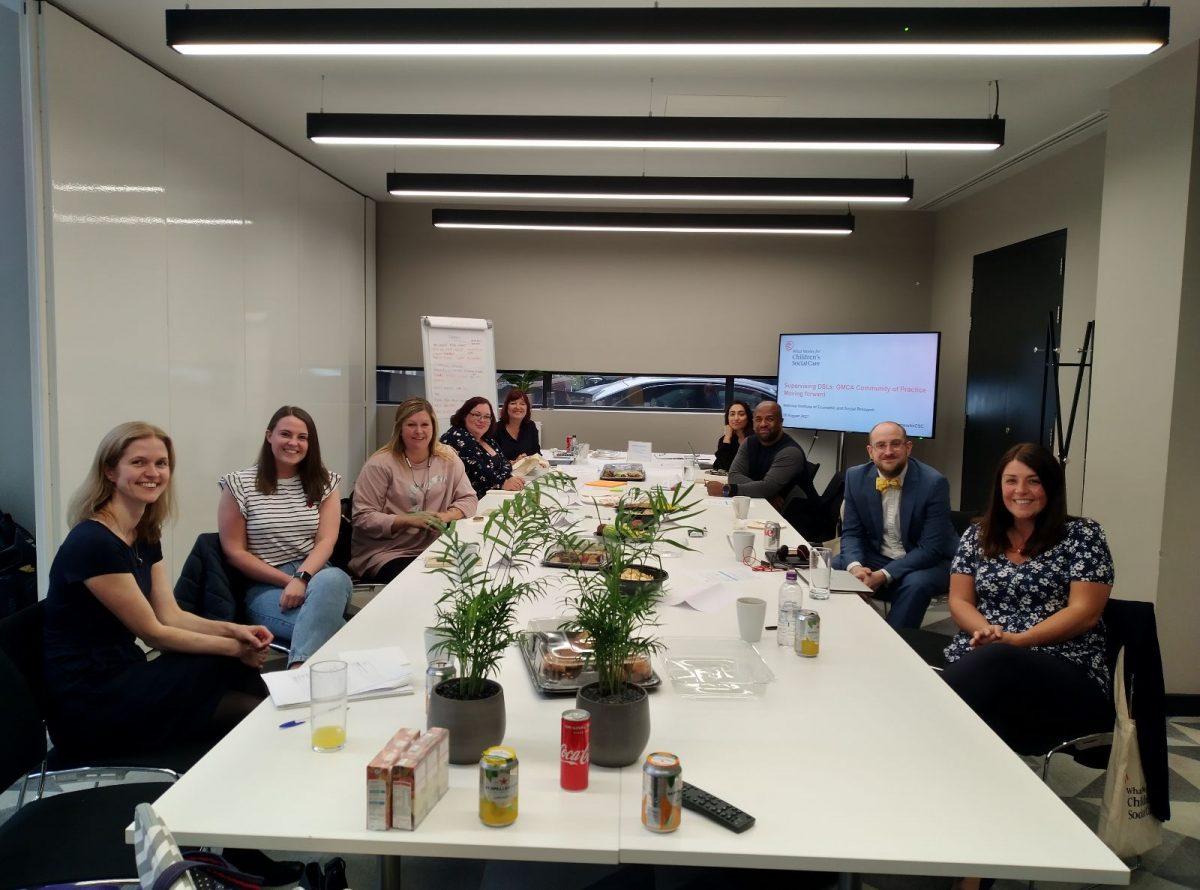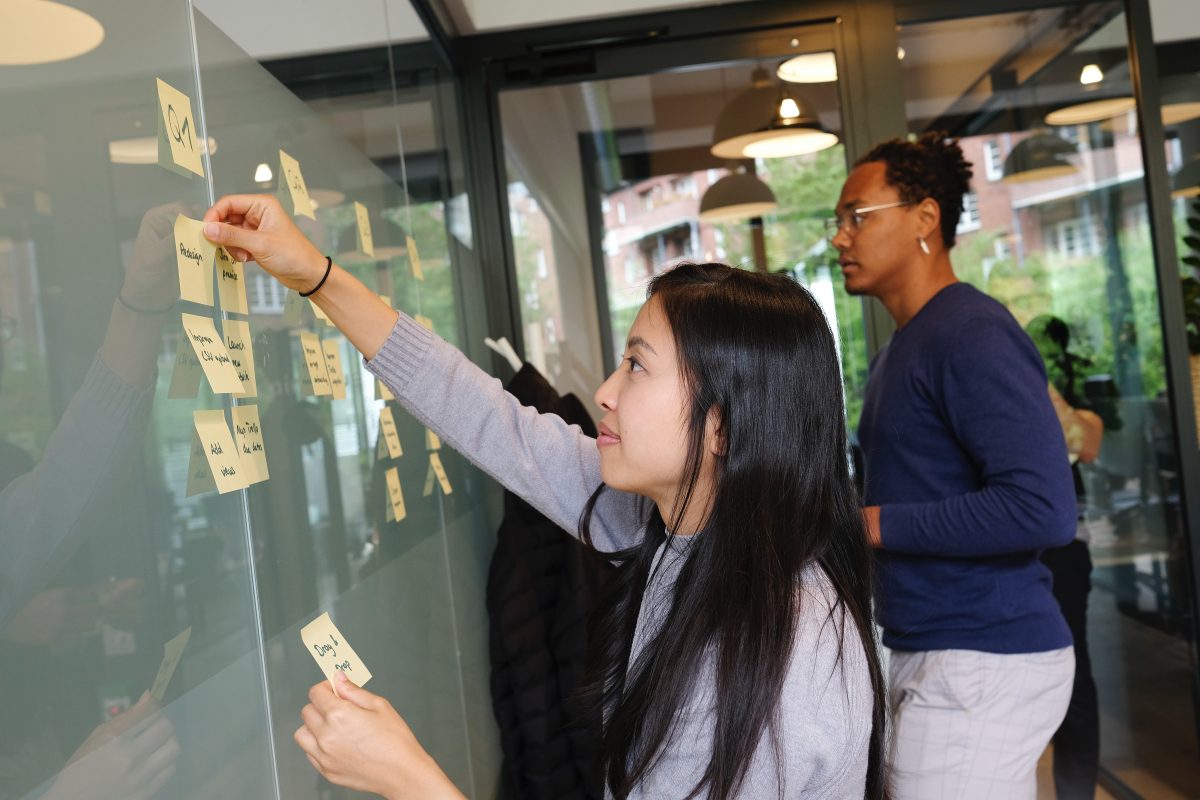Over the last month, we’ve held a series of workshops with local authorities, schools, and social workers involved in two of our biggest programmes of work – social workers in schools and supervision for designated safeguarding leads (DSLs).
These sessions aimed to bring together the people involved in the projects, to share understanding and learnings from the project with us and each other, contribute to our sense of how they’re going, build a community of practice and allow us to share the findings of the research so far.
Social Workers in Schools
Our Social Workers in Schools trial does exactly what it says on the tin – placing social workers in secondary schools to be a part of the school team, undertaking statutory social work, as well as broader work with children, families and school staff, to help improve safeguarding and reduce the need for more intense intervention later on.
This project followed on from three pilots that we conducted in Stockport, Lambeth and Southampton, where each local authority tried a different approach to the work with schools. These evaluations led to a better sense of what showed promise, as well as some indicative evidence of positive impacts. We then took the best bits from each local authority into a single model to scale up.
For the last twelve months, we’ve been running a large scale randomised controlled trial across 21 new local authorities, with each placing up to eight social workers into secondary schools randomly selected by the evaluator, Cardiff University. The evaluation will report in 2022.
DSL Supervision
The second project we’ve been talking about is our DSL supervision trial. This was our first trial, started back in 2019, providing supervision to designated safeguarding leads to half of the 94 primary schools in Bolton. This trial, evaluated by the National Institute of Economic and Social Research, found evidence of impact – 11% reductions in referrals leading to no further action, but was cut short as a result of the pandemic.
For the last twelve months, we’ve been testing a version of this programme in secondary schools across the Greater Manchester Combined Authority. Starting next month, we’ve also got a scaled up version of the trial in primary schools launching in ten new local authorities, a group supervision secondary school trial in partnership with the University of Sussex, and a trial in a mix of primaries and secondaries that is partnering with the Centre for Expertise in Childhood Sexual Abuse to focus on supervision relating to sexual abuse.
The events
The events we’ve been running aim to bring together the community to share what they’re learning, and this has been hugely rewarding for us to hear. Social workers shared their experience of grappling with cultural differences between some schools with zero tolerance policies, and a more relational, context-driven approach taken by social workers.
They also shared the experience of being caught between two worlds – social work and education – and how that could create a crisis around identity, as well as the challenges of working in schools during the pandemic-induced school closures. For some of the attendees, this was their first opportunity to hear how other social workers had overcome similar challenges, and to share their own stories and tips.
Most importantly of all though, was the sense that social workers found their roles hugely rewarding. Overcoming those initial barriers was well worth the effort, leading to better working between agencies and a sense on both sides that outcomes were improving. It was also great to hear how the initial findings of the research, presented by the independent evaluations at Cardiff University and NIESR, resonated with the people involved.
There’s still some time until we’ll have the results of these studies, but this opportunity to engage with the people involved in the day-to-day work and to hear how things are going, was hugely useful for us as we continue to think about the future of this programme of research.
Watch this space for the final findings!


